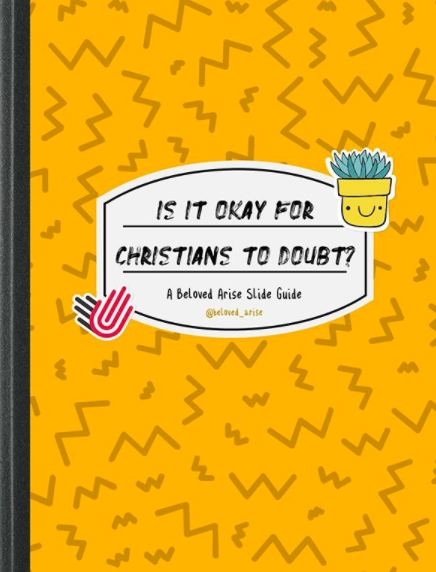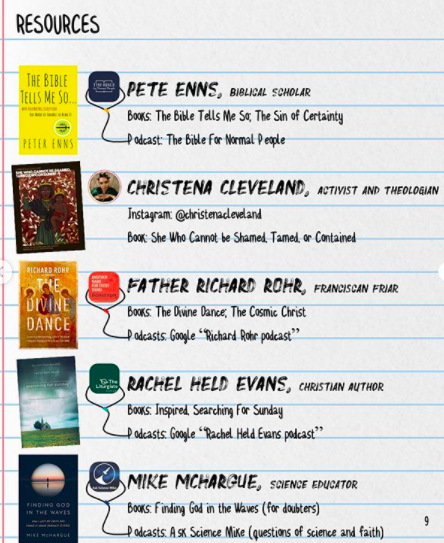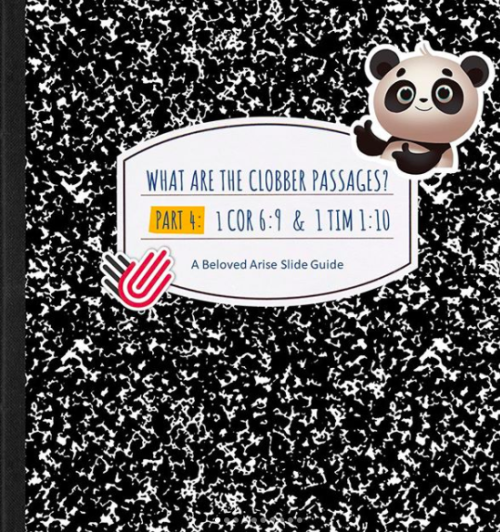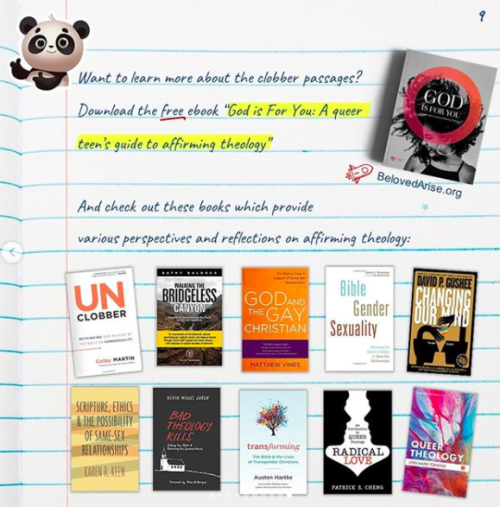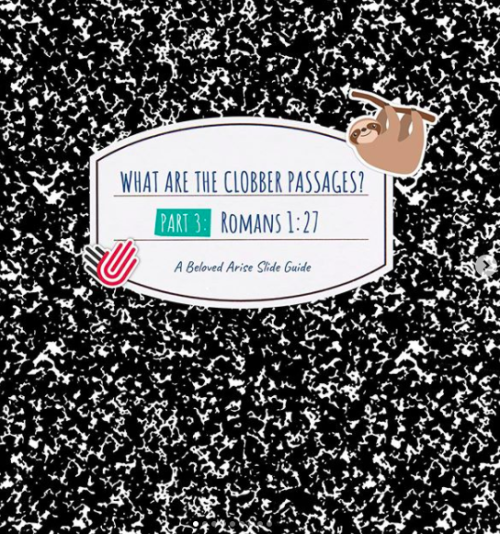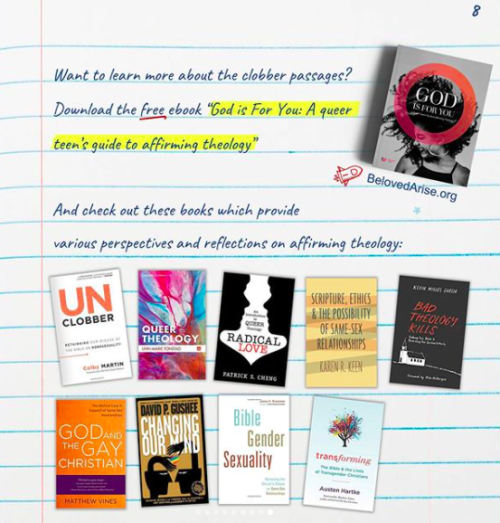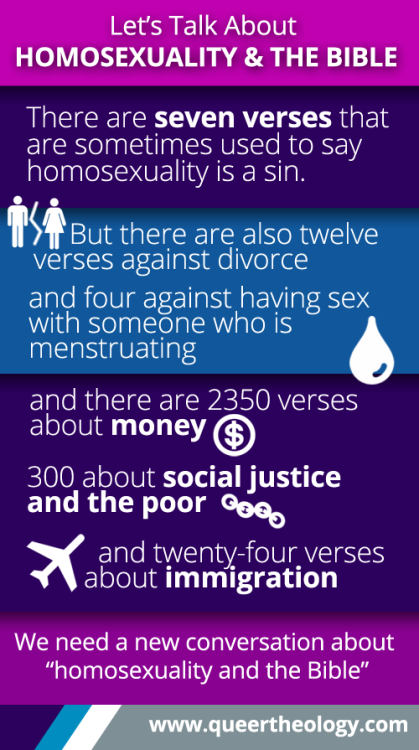#queer theology
Is It Okay For Christians To Doubt?
Many of us are taught that in order to be a strong Christian, we must have unshakable faith and be certain in our beliefs. But this creates a culture of shaming doubt, and millions* of Christians who experience doubt fear that they can’t be open about their faith. Maybe this is you. But what does the Bible really say about faith, doubt, and questioning?
*One 2017 study from Barna indicated more than half of Christians!
What Do These Words Even Mean?
In the New Testament, the word “believe” is a translation of Greek [image 3] (pisteúŌ, meaning to trust).
Like how you “believe in” or “trust in” your friend. Similarly, both “belief” and “faith” are both translations of [image 4] (pistis, meaning trust).
The words “belief” and “faith” aren’t wrong, but we’ve been using them so long they now have specific religious connotations that can limit our understanding. Thinking about it as our TRUST in God offers us a fresh perspective: it’s less like a thing we can possess (faith/belief) and more like a RELATIONSHIP WE LIVE (trust).
The Bible is a Communal Text
Speaking of relationship, there’s a relational contrast between Scripture’s original readers and us: while we today are extremely INDIVIDUALISTIC, they were a COMMUNAL culture.
The peoples in the Bible used their Scriptures to question and discuss how to worship God and live a good life AS A COMMUNITY. Of course it’s still good and fruitful to read the Bible on your own, but they knew the fruit is riper when harvested collectively. And while we often assume Scripture has the single unchanging answer, they quoted it to voice various perspectives within their communities, which changed with the changing times.*
*Just like healthy relationships do!
Biblical Examples
We see Jesus doing this reinterpretation among his own communities. He raises questions about how the Scriptures are interpreted and often disagrees with his fellow Jewish scholars.
Paul also does this, in one instance arguing strongly with Simon Peter,* which shows us that from the beginning of Christianity, questioning how we should live our faith (and even disagreement!) is a part of the tradition!
So how does doubt fit in?
*Galatians 2:11-14
The Wisdom of Doubt
It’s been said the opposite of faith isn’t doubt, it’s certainty. Doubt calls our attention to what doesn’t feel right, urging us to challenge what we think and look deeper than what’s on the surface. Doubt offers us questions which we can voice in a community* (just like Jesus and Paul and those before them!). And when we listen to our doubt, we give our TRUST opportunity to grow.
*ideally in a safe, open, curious community
A Nonbinary Way of Faith
The same binary way of thinking which dictates that everyone must be either male or female — this same binary mindset demands we choose between doubt and faith. But maybe our doubt is the Holy Spirit’s whisper that Christ’s good news is more inclusive and nonbinary than we ever imagined. God loves us all for our genders, our sexualities, and our curious questions, doubts, and changing beliefs.
Divine and Human, Trust and Doubt
When we (mis)use the Bible like proof that we’re right or an emotionless instruction manual, we miss so much of it’s nuanced wisdom and cheapen it’s artistry. The complex beauty of Scripture is that it’s a DIVERSE LIBRARY OF BOOKS, INSPIRED BY GOD AND WRITTEN BY PEOPLE. It is profoundly divine and thoroughly human, and contains many perspectives: some confident, some questioning, some harmonious, some disagreeing — all inviting us through doubt and trust in community to love God.
Practical Tips for Doubting
- Find a safe, open, curious community to question with. (join our weekly youth group here.)
- Start following experts. While anyone can benefit from reading the Bible regardless of education, we also need historians, scientists, archeologists, linguists, theologians, philosophers, and many other sort of experts to help us interpret what we read. Many have podcasts, books, and social media! (some listed in picture 4)
- Trust that God isn’t tallying your failures or loving you because you believe X, Y, or Z. God loves you. Invite Them into your journey of doubt and faith.
To see this information in slide form, go here.
Post link
The “Clobber” Passages
Welcome to the 4th and final post on this series on the “clobber passages”—Bible verses often used to argue that queerness is sin. We’re going to combine the last two because they both say essentially the same thing. Just like the Romans passage from last time, Paul wrote some other letters to the early church, some parts of which have been used to say that LGBTQ+ people cannot enter the kin’dom of heaven. And it all comes down to two Greek words.
1 Corinthians 6:9 & 1 Timothy 1:9-10
“Do you not know that the unrighteous will not inherit the [kin’dom] of God? Do not be deceived. Neither fornicators, nor idolaters, nor adulterers, nor homosexuals, nor sodomites, nor thieves, nor covetous, nor drunkards, nor revilers, nor extortioners will inherit the [kin’dom] of God.” 1 Corinthians 6:9-10 (NKJV)
In appeal to the new church in Corinth, Paul compares believers to the outside culture. He presents a list of sinful actions to say essentially: “You’re better than this.”
“…for those who kill their fathers or mothers, for murderers, for the sexually immoral, for those practicing homosexuality, for slave traders and liars and perjurers—and for whatever else is contrary to the sound doctrine.” 1 Timothy 1:9-10
Similarly, in a letter to his friend/mentee Timothy, Paul presents yet another list of sinful actions to watch out for.
Non-Affirming View
Non-affirming folks interpret these verses as a clear, unquestionable biblical condemnation of queerness. Some assert that “homosexuals” and “those who practice homosexuality” are unrighteous just like murderers and adulterers, and LGBTQ+ people who don’t repent of these sexual sins cannot get into heaven. Some even conclude that straight Christians are also sinning just by affirming LGBTQ+ people:
“We affirm that it is sinful to approve of homosexual immorality or transgenderism and that such approval constitutes an essential departure from Christian faithfulness and witness.” “The Nashville Statement” The Council on Biblical Manhood and Womanhood
Affirming View
Affirming folks argue these verses have been mistranslated. The reality is Bible translators have interpreted these verses in 1 Corinthians and 1 Timothy in different ways. For example, the writers of the New King James Version (1979) decided to use the word “homosexual” in 1 Corinthians, but other widely accepted Bible translations decided “homosexuals” was not accurate, and instead used other words.
“Effeminate” (New American Standard Bible, 1963)
“Sexual perverts” (Revised Standard, 1971)
“Boy prostitutes” (New American Bible, 1970)
“Male prostitutes” (New Revised Standard Version, 1989)
“Sodomites” (New American, 1941)*
*Check out our slide guide on Sodom and Gomorrah for the context on “sodomy.”
It Happened in 1946
The word “homosexual” did not exist in the Bible until a group of American translators put it in there in 1946. The writers of the Revised Standard Version (RSV) were the first to mistakenly use the word “homosexual” in lieu of the Greek words “malakoi” and “arsenokoitai” in these verses. They later admitted this error and published a revision of the RSV in 1971 where “homosexuals” was replaced with “sexual perverts.” But it was too late; by then, the RSV’s (mis)use of the word “homosexuals” was adopted by other popular translations of the Bible—reinforcing an enduring societal myth that queerness is ungodly.
“Malakoi”
So let’s unpack the two Greek words the RSV mistakenly translated as “homosexual.” The first word, “malakoi,” means soft (as in clothing). When applied to people, it describes weakness, laziness, cowardice, or lack of self-control. It was a generic insult for anything considered feminine because, in those times, women were often seen as “soft” or lacking control over their desires and feelings. Affirming folks believe Paul is referring to people who lacked self-control. Here’s how one translation puts it:
“Those who use and abuse each other, use and abuse sex, use and abuse the earth and everything in it, don’t qualify as citizens in God’s [kin’dom].” 1 Corinthians 6:9-10 (The Message)
“Arsenokoitai”
The second word, “arsenokoitai,” is a very rare compound word (literally “male” and “bed”) probably made up by Paul. Because of the contexts in which Paul uses this term, affirming folks argue that Paul is referring to exploitative same-sex practices common in his time: prostitution, pederasty*, and sex with enslaved men. Affirming folks point out that loving, committed same-sex relationships between equals did not exist during this time, and therefore, Paul was NOT talking about modern same-sex dynamics, such as queer marriages.
*sex between men and boys
Conclusion
1 Corinthians 6 and 1 Timothy 1 should NOT be used to “clobber” LGBTQ+ people. What Paul condemns are abusive and exploitative behaviors—not queer identity or healthy, loving queer relationships.
As we said at the beginning of this series, there is absolutely nothing in the Bible that suggests a person’s sexual orientation or gender identity prohibits them from being a follower of Christ. These “clobber” passages, when put in appropriate context, actually reveal valuable insights for God’s people, teaching us to help the vulnerable, to care for each other, to practice the way of LOVE.
To see the post in slide-guide form, go here.
Post link
Queer people offer just as much to any church or fellowship as any straight or cis person. Arguably, we bring more to the table, having to go through hardships not understood by those outside of the queer communities.
Queer people are necessary in the church and God wants us in the church.
I want to clarify: Church doesn’t just mean that building or organization down the street. A church is any fellowship of Christ followers looking to better the world by bringing love and healing as Yeshua (Jesus) did. When Yeshua birthed the church on the cross, they didn’t just create specific organizations of people defined by the state. No, they brought us places to discuss God freely, surrounded by other believers, doing our best to understand God in our own lives.
For as Matthew 18:20 (NIV) punctuates: “For where two or three gather in my name, there am I with them.”
Therefore, from this perspective of the church, queer people have so much to offer. You are needed and wanted in the church and the world, for God has declared it so.
Go out and be Beloved!
Post link
The “Clobber Passages”
This is part 3 of our series on the Bible passages used by some Christians to exclude LGBTQ+ people. This next “clobber” passage from Romans is probably the one most non-affirming people refer to when they say “the Bible is clear on this…” Romans is a letter written by the apostle Paul to the Christian church in Rome. After a greeting and introduction, Paul writes about the righteousness of God, describing what life is like without God. And then the “clobber” verse…
“For this reason God gave them up to degrading passions. Their women exchanged natural* intercourse for unnatural, and in the same way also the men, giving up natural* intercourse with women, were consumed with passion for one another. Men committed shameless acts with men and received in their own persons the due penalty for their error.”
Romans 1:26-27 (NASB)
Non-Affirming View
Non-affirming Christians interpret these verses as an indictment on same-sex relationships. They assume that Paul is critiquing same-sex behavior and same-sex relationships. As such, they conclude that Paul is saying that heterosexuality is the only good and natural orientation in God’s eyes.
Affirming View
Affirming Christians, including many biblical scholars, interpret these passages as an indictment on extreme idolatry and excessive behavior. Paul is describing a group of people who have deserted God and abandoned their decree to love God, neighbor, and self. These folks have fallen into extreme idolatry and have become obsessed with their own passions and desires. When he talks about sexual behavior here, Paul is actually critiquing married heterosexual men and women, not gay people. They were so consumed by lust that they were no longer satisfied with their marriages and abandoned their natural inclination for their partners.
A People Who Have Lost Their Way
Paul is talking about people who had fallen into extreme pagan idolatry and stopped worshipping God. Romans 1:25 says “They exchanged the truth of God for a lie and worshipped and served the creature rather than the creator.” And, because of this, they did unhealthy things to each other—cheating, stealing, backstabbing, killing. And some turned sex into a meaningless act of self-gratification—no romance, no companionship, no beauty, no love. These passages are a warning (similar to the Sodom story) about what happens to communities when people lose their love for God and for each other.
“Natural” and “Unnatural”
What does Paul mean when he refers to intercourse as “natural” or “unnatural?” Does this mean that queerness is unnatural and against God’s order? Affirming theologians argue that Paul uses “natural” (physis in Greek) to mean “customary.” For example, 1 Corinthians 11, Paul says it’s natural (physis) for men to have short hair, and that men who have long hair are disgraceful.* Do Christians today conclude all long-haired men are unnatural and disgraceful to God? No, because we understand that Paul is referring to customs in his culture. Paul’s comments in Romans 1:26-27 (which uses the same Greek words) are references to custom.
*”Disgraceful” is the same word translated “degrading” in Romans 1:26.
Not Gay vs Straight, But Excess vs Moderation
“Paul is not condemning being gay as opposed to being straight. He is condemning self-seeking excess as opposed to moderation—a concern made clear by his repeated use of the term “lustful,” and by his description of “exchanging” or “abandoning” heterosexual sex.” Matthew Vines, The Reformation Project
Paul is NOT critiquing same-sex relationships; he is NOT condemning consensual, loving, committed same-sex relationships. What Paul is condemning is idolatry which has led to excessive, greedy, indulgent, love-less sexual behavior.
Conclusion
Romans 1:26-27 is a warning against idolatry, which drove a group of people to excessive behaviors, including abusing themselves and each other sexually (which falls outside the confines of their natural state.)
Romans is NOT an indictment of same-sex behavior or queer relationships. As such, these passages are gravely misused as “clobber” texts to condemn the LGBTQ+ community.
To see the post in slide-guide form, go here.
Post link
You are not worthless.
Now let me say it louder for the folks in the back:
YOU ARE NOT WORTHLESS
Last month, my habit of scrolling TikTok paid off—I discovered the song “Creature” by Half Alive, which inspired me to preach a message on the nonbinary concept that we are haunted by original shame yet also holy.
I’ve posted the sermon here, and it’s also on the Sanctuary YouTube channel.
Here are the highlights:
- Your existence is “supremely good.” We have inherent value as human beings (Genesis 1:24-31, Genesis 3:21, Matthew 6:26-30)
- Your worth isn’t determined by the church. As children of God, we’re promised a seat at the table in the kingdom of heaven. (Romans 3:23-24, Galatians 3:26-28)
- Your humanity isn’t something you need to overcome. Jesus felt sadness, anxiety, and physical and emotional weakness—and if God incarnate allowed Himself to feel those things, we can, too. (Matthew 26:36-46)
We record Sunday school lessons and sermons every month, plus fun stuff like skits. Subscribe to the YouTube channel for updates!

Some encouragement via @ohlawdthebirds - thank you, friend!
The God who sees me

Apostle Lee Ann posed a thoughtful question during Sanctuarytoday:What does Christ’s coming (either first or second) mean to you?
Truthfully, I’d never considered the personal significance of Jesus’ birth or future coming. But then I remembered what one of the other leaders said about Hagar—she named God El Roi, or “the God who sees me.”
Jesus is living proof that God sees me, and others like me.
Jesus not only surrounded himself with the outcasts of his society, he also called them to be part of his ministry. To show the world that God had a place at the table for people like them, and that not even the religious leaders could do anything about it.
As a queer, clearly gender non-conforming person living in the Bible Belt (the southeastern United States), I’ve dealt with rejection from friends I’ve known for many years, and I understand that I’m not actually welcome at many churches that claim “all are welcome.” Finding Sanctuary helped me find God again.
Despite the rejection that I’m experiencing, I find comfort in the fact that God sees me. Not idea of me, not the me that I could be—me, as
I am.
I don’t really celebrate Advent (and I’m not really a huge fan of Christmas). But if you celebrate, I pray that you find comfort in the fact that God is El Roi, and that God has a seat at the table for you.

[Image description: The Is He Though meme. The first line of the caption says, “CisHet Christians: Your only identity is in Christ!” The second line says, “Queer Christians,” with a reaction gif of Thor talking to Bruce Banner, saying “is it though?” End description.]
@ohlawdthebirds brought up an excellent point:
So oftentimes, when hearing church leaders talk about queerness and about how its a sin, I’ve heard the argument “Your identity should be in Christ, not your sexuality/gender identity.” I find this very ironic and somewhat hypocritical considering how many conferences, merch, books, and sermons are centered around being straight and cis (i.e. biblical manhood/womanhood, singles ministries).
And anyways, aren’t we made in God’s image? Are our identities something to be ignored, or something to be acknowledge? Why can cishet Christians openly parade (and dare I say idolize) their identities [while] queer people must divorce themselves from them?
This is also something I’ve been stewing on for a while. It didn’t occur to me until recently that I could embrace both identities without offending God.
For example: In Matthew 4, Jesus didn’t order the disciples to give up their identities in order to follow him. In fact, their personalities, backgrounds, and occupations influenced their ministry.
But back to the point.
I don’t think many cishet Christians realize that being cisgender and heterosexual isan identity, not the default setting for human beings. And that lack of awareness is why they tell us to tone down our queerness. To minimize ourselves. Because we don’t fit the mold.
But you know who Jesus called to be his disciples?
The outcasts. The oppressed. The “sinners.” Sound familiar?
TL;DR: Being a Christian doesn’t mean you have to downplay your sexuality/gender identity.
Embracing nonbinary theology
I just answered an ask about the Trinity, which boggles the minds of lots of Christians. What’s cool, though, is that doctrine like that proves that Christian theology can’t exist on a binary—the Trinity is not eitherthree beings orone, but both and.
Another nonbinary concept is the idea that we’re bothimperfect beings andsacred because we’re made in God’s image. I talked about this idea when musing on “Creature” by half•alive, and I’m planning to take a deep dive in my upcoming sermon for Sanctuary.
I’m excited to start exploring more nonbinary concepts!

I rode that hamster wheel for ten years before finally FINALLY coming to trust that yes, you can be gay, bisexual, transgender, or queer and a Christian, that being LGBTQ is a normal, natural part of the diversity of God’s creation.
But how do I know?

The Bible isn’t a rulebook (though some books in it have some rules meant for certain people in specific contexts). And the Bible doesn’t speak in a unified voice. It’s a collection of books written and compiled by countless authors, many of whom were drawing upon other oral and written traditions that came before them. In places, the Bible even contradicts itself.
Read the full article here.
But when the Bible talks about Pride the Bible is talking about people who lord their station over others. People who are oppressors and tyrants. People who think they speak for God. The Bible is talking about people who are cruel to others, who sow dissension, who don’t act in the best interest of the community.

Read the full article here.

The lesbian and gay Christian conversation (with occasional comments about bisexual and transgender folks) seems to finally be hitting its peak. Everywhere you turn these days there are new books and conferences and denominational statements. I’m observing some troubling trends within this LG(BT) Christian movement.
Read the full article here
If you’ve ever been to a Pride celebration you know that the people watching is fantastic! There are colorful outfits, elaborate costumes, cute kids, couples holding hands, and more. It’s lovely!
And there are no small number of people who are basically wearing nothing.

Just a couple of weeks after I returned home from the mission trip that changed everything, I packed up my stuff and started college at a conservative Evangelical college in the Midwest. The school rules were simple: no smoking, no drinking, no sex, and absolutely no dancing. Oh, and no gay people either. I still didn’t have language for my gender identity but I knew I felt completely out of place living in the girls’ dorm. I didn’t feel like I fit in with other people on my hall and I was worried that they would be weird with me if they found out I “struggled with homosexual tendencies” (as I was calling it).
As difficult as the summer was, I still felt called to ministry. I knew God wanted me to be working in the church. I declared a double major: Youth Ministry and Communications (with a theatre emphasis). I was going to learn how to reach people and make good art that would change things.
In college I made new friends who made space for my changing identity and beliefs. I made art that I was really proud of for the first time, art that asked questions instead of simply providing all of the answers. But I also grappled with mental health stemming directly from my struggles with my sexuality and from my shifting faith. It was a challenge and I didn’t feel like there was anyone I could talk to. I tried on campus therapy but quit as soon as the counselor brought up the way I dressed. It didn’t feel like a safe space.
Read the whole thing here!
How can you relate to this? Hit reply to let us know what this article brings up for you.
Blessings,
Fr. Shay
Two weeks after my Canadian wedding I started seminary at Union Theological Seminary in New York. It was the first place where I was able to spend every day as all of myself. Fully queer. Fully Christian. There was no apologizing for who I was.

Seminary was both trying and incredible. I was finally given the tools to understand my faith. I learned all of these things that had been kept from me in all of my evangelical schooling. I learned where certain doctrines came from and how there were a lot of different views on things I had always been taught were settled. Things like what salvation meant, what the death of Jesus meant, what sin was, and on and on. I learned about the history of various denominations which made what they believed make so much sense. I learned that nothing is formed in a vacuum; everything has a context.
Make no mistake, this was hard work. It was rigorous. It took effort and commitment. In some ways it would have been easier to not put in the work. To just walk away from Christianity. But there was something about this Jesus story that kept pulling me back in and made me want to find out if I could have a faith that was life-giving.
So I put in the work and it was was healing. But it also wasn’t over.
Read the whole thing here!
Let me know what you think about this and what feelings it brings up for you!
Blessings,
Fr. Shay

Over the last couple of months I’ve gotten asked the same question multiple times: How do transgender people fit in with a belief in the “image of God” and the belief that God doesn’t make mistakes?…Your question assumes a couple of things: There is *one* image of God. There is a *right* image of God. We know what the image of God is. I find all of those things hard to believe.
Read the full article here »
So let’s cut through all the noise, right? Let’s go straight to the source… let’s take a look at what the Bible says! That will tell us what to think and how to act, right? (Spoiler alert: it won’t)
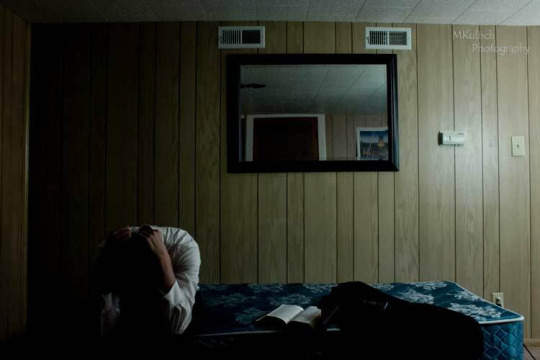
Read the full article here.
I hear this question a lot. The sense I get is that the asker is saying: “Can I still be a good and loving person and believe this way?” At least that’s the generous understanding. It could be coming from a place of “In this age of political correctness is it possible to hold a viewpoint that feels offensive to some people?”
The short answer is no.
EVIDENCE SHOWS THAT WHEN PARENTS DO NOT ACCEPT AND AFFIRM THEIR LGBTQ CHILDREN, LGBTQ CHILDREN ARE AT INCREASED RISK FOR MENTAL, PHYSICAL, AND EMOTIONAL HARM.


